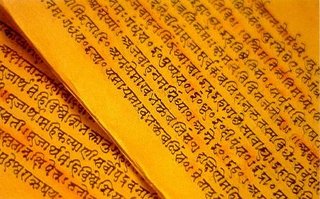The Quran states in Surah Al-Nahl (16:36), "And We certainly sent into every nation a messenger, [saying], ‘Worship Allah and avoid Taghut.’" This verse demonstrates God's infinite mercy and justice, ensuring that every nation received divine guidance at some point in history. While most of the messengers were sent to the Children of Israel, the final prophet, Muhammad (peace be upon him), was chosen to deliver a universal message encompassing all of humanity.
The Universality of Prophet Muhammad’s Message
Unlike previous prophets who were sent to specific tribes or nations, Prophet Muhammad’s mission transcended geographical, ethnic, and cultural boundaries. His divine mandate was to call people of all races and backgrounds towards monotheism and righteousness. The Quran affirms this in Surah Al-Anbiya (21:107): "And We have not sent you, [O Muhammad], except as a mercy to the worlds."
This universal approach marked a significant departure from previous prophetic missions. While Moses was sent to the Children of Israel and Jesus reaffirmed Mosaic teachings to the Israelites, Muhammad's teachings addressed the entire human race, warning against eternal damnation and guiding towards salvation.
Prophecies of Prophet Muhammad in the Bible
Many Islamic scholars and researchers have argued that Prophet Muhammad’s advent was foretold in earlier scriptures, particularly the Bible. Several references in the Old and New Testaments have been interpreted as prophecies about his coming:
Deuteronomy 18:18 – "I will raise up for them a prophet like you from among their brethren, and I will put my words in his mouth, and he shall speak to them all that I command him."
Muslims interpret this verse as referring to Prophet Muhammad. The phrase "from among their brethren" is taken to mean from the descendants of Ishmael, the brother of Isaac and the ancestor of the Arabs.
John 16:12-14 – "I have much more to say to you, more than you can now bear. But when he, the Spirit of truth, comes, he will guide you into all truth. He will not speak on his own; he will speak only what he hears, and he will tell you what is yet to come."
Islamic scholars argue that this passage refers to Prophet Muhammad, who is believed to have received divine revelation through Angel Gabriel, delivering God's words verbatim.
Hindu and Zoroastrian Scriptures Foretelling Muhammad’s Arrival
Islamic scholars have also explored ancient Hindu and Zoroastrian texts, finding indications of a final prophet that align with descriptions of Muhammad.
Hindu Scriptures
Several Hindu texts contain references believed to foretell the coming of a final messenger:
Bhavishya Purana (Prati Sarag Parv III:3,3,5-8)
This Hindu scripture allegedly describes a foreign leader with attributes similar to Prophet Muhammad, stating that he will be a guide for people who had previously engaged in idol worship.
Rigveda (Book 1, Hymn 53, Verse 9)
Some scholars interpret the mention of a "praised one" as a reference to Muhammad, as his name in Arabic (Muhammad) literally means "the praised one."
Zoroastrian Scriptures
Zoroastrian texts also contain references that some scholars link to Prophet Muhammad’s advent:
Dasatir No.14 and Zend Avesta
These texts speak of a final messenger coming from the region of Arabia, characterized by truthfulness and a call to monotheism.
Zand-i Vohuman Yasht
This scripture is said to predict the arrival of a prophet whose teachings will reform the religious practices of the people and establish justice.
The Final Messenger for All Mankind
Prophet Muhammad’s message was not confined to Arabs or a single group but extended to all of humanity. His life exemplified justice, mercy, and unwavering faith in the oneness of God.
Equality of Mankind
The Prophet famously stated in his last sermon, "O people! Your God is One, and your father is one. An Arab has no superiority over a non-Arab, nor does a non-Arab have superiority over an Arab, except by piety and good deeds."
This universal principle eradicated racial and ethnic divisions, establishing an egalitarian framework that continues to inspire societies today.
A Call for Moral and Social Reform
His teachings emphasized justice, compassion, and ethical conduct, advocating for the rights of women, orphans, and the marginalized.
He reformed the corrupt socio-political structures of Arabia, establishing a model governance system based on the principles of honesty, welfare, and accountability.
Conclusion: A Universal Legacy
The Quranic statement that messengers were sent to every nation underscores the divine justice of God. While many prophets came specifically to guide the Children of Israel, the final Prophet, Muhammad, was sent with a universal mission to bring all of humanity towards salvation.
The discovery of prophecies about Prophet Muhammad in various scriptures further substantiates his role as the final messenger. From the Bible to the Hindu and Zoroastrian texts, references to a future prophet bear remarkable similarities to Muhammad’s life and mission.
His universal message of monotheism, social justice, and ethical conduct continues to resonate across cultures and generations, making him not just a prophet for the Arabs but a guide and mercy for the entire world.
In the lecture below, an Indian sub-continent scholar of Islam, gave revealing account of the prophecies of the advent of Muhammad in the Hindu scriptures:
Prophet Muhammad in Hindu scriptures

No comments:
Post a Comment